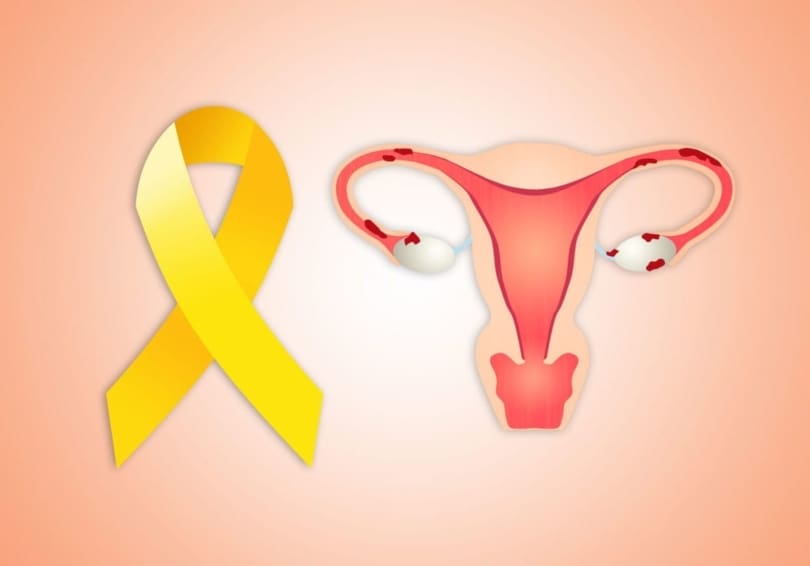
What is endometrial cancer?
Endometrial cancer is cancer of the endometrium (the lining of the uterus). It is the most common form of uterine cancer.
Symptoms of endometrial cancer
The most common symptom of endometrial cancer is abnormal bleeding in your uterus. Contact your doctor if you have:
- Menstrual bleeding that is heavier or lasts longer than usual. This is especially true after the age of 40.
- Menstrual cycles that are shorter than 21 days.
- Post-menopausal bleeding and/or vaginal discharge.
What causes endometrial cancer?
Endometrial cancer does not have an exact cause. Estrogen levels have been known to play a part.
What causes endometrial cancer?
Endometrial cancer does not have an exact cause. Estrogen levels have been known to play a part.
How is endometrial cancer diagnosed?
Your doctor will do a pelvic exam. They also will review your symptoms and health history. To diagnose endometrial cancer, they most often will perform a pelvic ultrasound. Other diagnostic tests may include:
- Endometrial biopsy can be done in your doctor’s office. Your doctor will insert a narrow tube through your vagina and into your uterus. He or she will remove a small tissue sample from your uterine wall. The tissue is tested in a lab for cancerous or precancerous cells.
- Dilation and curettage (D and C) takes about an hour. This is an outpatient procedure. It requires some form of anesthesia. The procedure involves dilating (widening) your cervix (the opening of the uterus). This procedure also requires the doctor to insert a thin tool and collect a tissue sample. A lab will test for cancerous or precancerous cells.
- Imaging tests can help diagnose cancer. These are rarely done to diagnose endometrial cancer, though. Examples include an ultrasound, magnetic resonance imaging (MRI), and computed tomography (CT) scan. These tests are less invasive and safe for people who cannot have anesthesia.
Talk to your doctor about which procedure is right for you. Tell them if you have health problems, such as high blood pressure, diabetes, or other types of cancer.
If you are diagnosed with endometrial cancer, your doctor will do more testing to determine the stage and grade.
Can endometrial cancer be prevented or avoided?
You cannot prevent or avoid endometrial cancer. It is most common in women who are older than 50 years of age and have gone through menopause. A high estrogen level can increase your risk. Obesity, diabetes, or high blood pressure can affect this. Women who use hormone replacement therapy (HRT) should be careful. If you take estrogen, make sure you supplement it with progestin (a synthetic form of progesterone) as well.
Other risk factors include:
- An early first period (before 12 years of age)
- Irregular periods
- Never being pregnant
- Endometrial polyps
- Polycystic ovary syndrome (PCOS)
- Use of a medicine called tamoxifen
Using birth control pills with both estrogen and progestin during childbearing years may lower your risk of endometrial cancer.
Endometrial cancer treatment
Treatment for endometrial cancer typically involves a hysterectomy. This is surgery to remove your uterus. You may need your fallopian tubes and ovaries removed as well. If your estrogen level is high, your doctor may prescribe progestin to balance it. You may need radiation therapy or chemotherapy. This will depend on the stage and grade of the cancer.
Living with endometrial cancer
People who have endometrial cancer can live a long life. Treatment is very effective, especially if the cancer is found early. If it is found late or left untreated, it can spread outside the uterus.
Questions to ask your doctor
- If I have endometrial cancer, is there a risk that my daughter could have it too?
- What are the side effects of a hysterectomy and taking hormones?
- How long does treatment take?
- If I have risk factors, such as taking tamoxifen for breast cancer, should I get screened or tested for endometrial cancer?
- Are there any support groups that you can recommend?
![]()
Copyright © American Academy of Family Physicians
This information provides a general overview and may not apply to everyone. Talk to your family doctor to find out if this information applies to you and to get more information on this subject.









